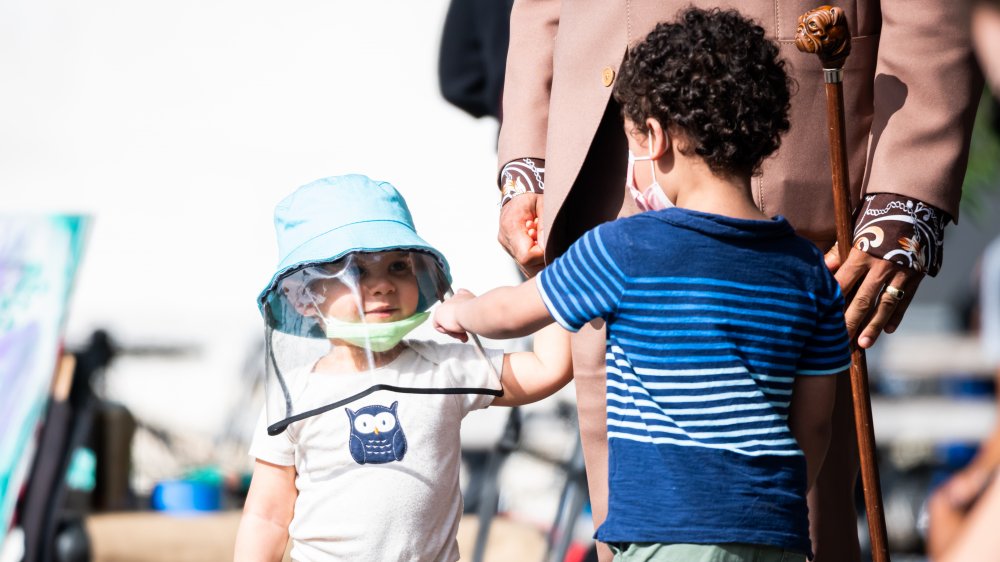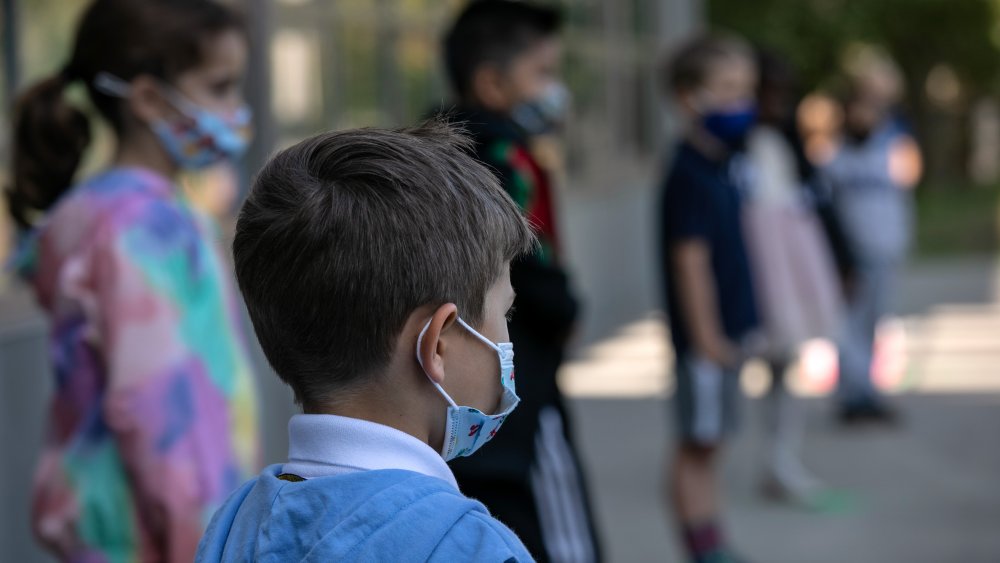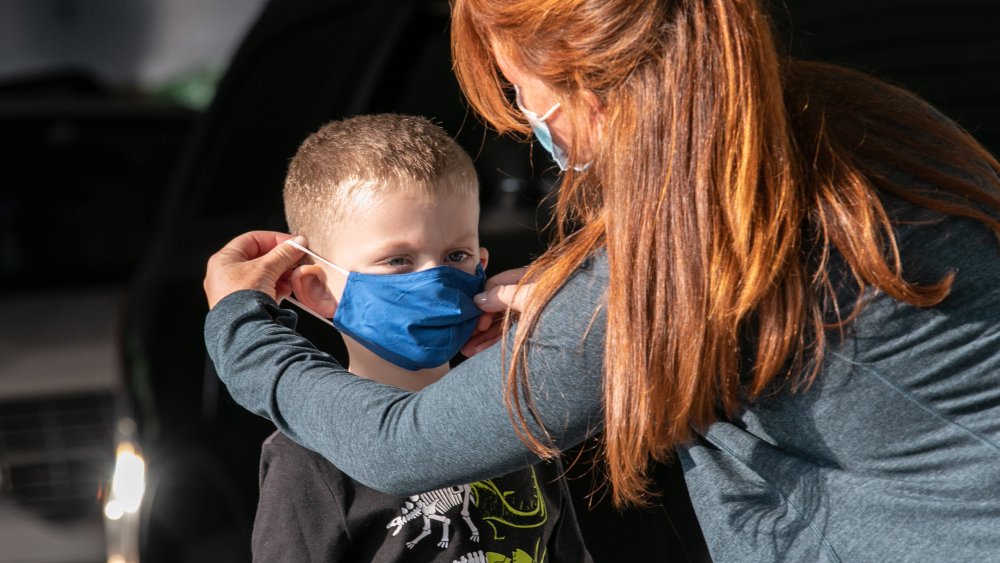How Parents Might Unknowingly Influence Their Kids About COVID Safety
If you've grumbled about COVID-19 safety guidelines such as wearing masks in public — or ignored such measures altogether — your children could follow your example, making returning to school in person more stressful and difficult all around, psychologists and other experts say (via Healthline).
A The New York Times nationwide survey in August found that parents felt anxious, overwhelmed, and abandoned over the prospect of working remotely, assisting their children with e-learning, and handling child care. In fact, 80 percent of a representative group of parents said they were dealing with all three and finding themselves facing "impossible choices."
Yet returning to in-person schooling presents additional challenges. Teachers and school staff who must follow pandemic safety guidelines can encounter children of all ages who don't want to comply with them because their parents don't.
Whether you're diligent about wearing a mask or face shield, you distrust medical science, or you consider wearing a mask a political issue or a matter of "personal freedom," children pattern themselves after you, Jennifer Hoskins-Tomko, LCSW, a psychotherapist who owns Clarity Health Solutions in Jupiter, Florida, told Healthline. "If parents approach it by rolling their eyes and complaining, kids will pick up on those cues and be more resistant to wearing a mask themselves," she said.
Refusing safety guidelines can cause stress at school and at home
Because COVID-19 is a respiratory virus, the Centers for Disease Control and Prevention recommends wearing masks in public settings when around people who don't live in your household. Masks or face shields may slow the spread of the virus — and prevent people who may have it and not know it from transmitting it to others. Cloth masks do not filter the air you breathe; they prevent respiratory droplets from when you breathe, cough, or sneeze from traveling through the air and onto other people and surfaces (via CDC).
Former Arizona public school teacher Bryan Truang, who now teaches via online learning, told Healthline that students who don't comply with guidelines meant to keep everyone safe can cause friction in the classroom as well as at home.
"As a teacher, it's my job to look out for the welfare of all my students," Truang told Healthline. "This means that I will follow the advice of medical professionals and the protocols put in place to likewise protect your child. If I enforce policies like wearing a mask and handwashing with a student, but you as their parent do not, I'm essentially in a position where I'm challenging you and, as a result, the faith and trust that student puts in you."
Highlight that wearing a mask is hopefully temporary and helps others
Even if a student doesn't publicly clash with a teacher about this, a child can internalize this conflict as additional stress and anxiety, Truang said.
At least three-quarters of the mothers and fathers in the New York Times survey worried prior to the school year about their children's social skills, mental health, and academic progress because of e-learning. How much time their children spent in front of a computer screen was another concern.
Nevertheless, the top concern for mothers (79 percent) and fathers (81 percent) was keeping their children safe from exposure to COVID-19, the survey shows.
Regardless of your personal misgivings or beliefs about wearing masks in public, experts say they're a necessary part of being around other people — whether at work or at school — during the pandemic. Try framing your advice to your children around how we're all figuring out what's best right now and looking out for other people. "It's all right to admit that it's uncomfortable and that you wish you didn't have to wear a mask, but remind your kids that it is hopefully only temporary, and it is for their own benefits and for the protection of others," Hoskins-Tomko told Healthline.



